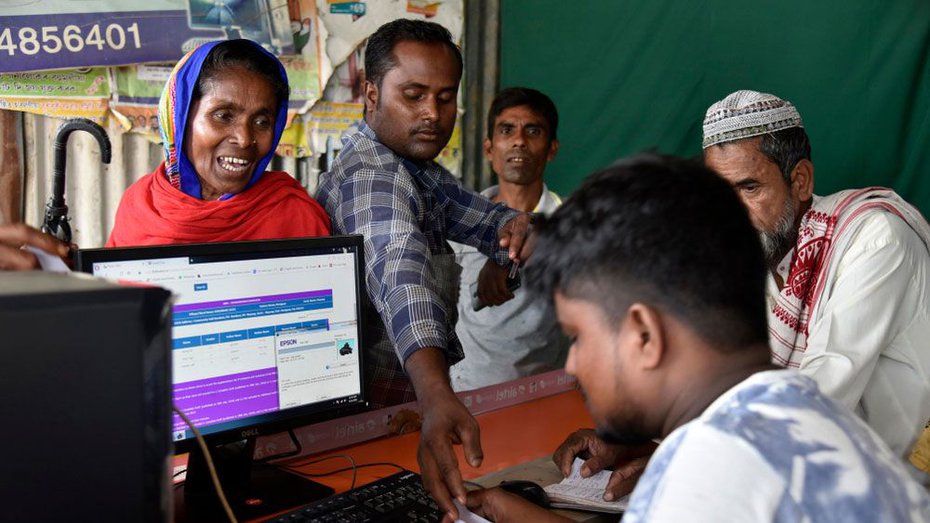The CPM on Tuesday extrapolated from Assam’s experience in preparing the National Register of Citizens to warn that a similar exercise nationwide would cost the exchequer Rs 50,000 crore at a time the country was going through a recession.
“The Assam NRC process has already cost the exchequer Rs 1,220 crore, with a population that is less than 3 per cent of India’s population. On this basis, the total NRC process will cost more than 50,000 crores rupees!” the party said in a booklet it has brought out to expose the “10 big lies” of the Narendra Modi government on the Citizenship (Amendment) Act, the National Population Register and the NRC.
The CPM has also questioned the rationale in having an NRC when the coverage under the Aadhaar biometric scheme was near total.
“There is also the Electors Photo Identity Card issued by the Election Commission of India. So another citizenship register and identity card are superfluous,” the document has pointed out, underscoring the CPM’s assessment that the only purpose the NRC would serve is the BJP’s divisive agenda.
As for the “lies” being doled out by the government, the CPM said “the Prime Minister himself is the head of the lie manufacturing factory”, pointing to his December 22 claim at a Delhi rally that there had been no discussion on the citizens’ register ever since he came to power in 2014.
The document places on record President Ram Nath Kovind’s speech in Parliament besides Union home minister Amit Shah’s statement and nine replies given by the home ministry to the House to establish that Modi was lying when he made that statement.On the government’s claim that the CAA was not discriminatory, the booklet points out that The Citizenship Act adopted in 1955 — which defined five ways of becoming a citizen — did not mention any religion.
“This was in keeping with the constitutional definition of citizenship which does not differentiate or discriminate against any person on grounds of religious belief or caste, class or gender in acquiring citizenship in India,” the booklet says.
“The CAA changes this,” it says, by naming religions whose members can hope for fast-track citizenship.
The booklet also establishes the systematic manner in which the Modi government planned the CAA. “Prior to the amendments to the CAA, in September 2015 the Modi government in an entirely surreptitious manner and behind the back of Parliament, made changes in the Passport Entry into India Act 1920 and the Foreigners Act 1946.”
These amendments granted long stay visas to people from the six religious communities named in the CAA from Afghanistan, Bangladesh and Pakistan who entered India without documents, exempting them from penal action for illegal entry.
The amended act essentially seeks to grant citizenship to Hindu, Parsi, Sikh, Buddhist, Jain and Christian migrants from these three countries.
As for the Prime Minister’s claim that the Congress and the CPM had done a U-turn after demanding a law for minorities from Bangladesh, the party said: “It is wrong to conflate concern for the rights of deprived sections to a toxic policy of exclusion from citizenship rights as is being done by the Modi government.” It asserted that the party has never supported a policy of exclusion of any community.
On the government’s claims that the NRC process had not been legalised/notified, the CPM said the amendments made to The Citizenship Act in 2003 by the then Atal Bihari Vajpayee government had established the legal framework.
The booklet pointed to the statement that Kiren Rijiju, the then junior home minister, had made in Parliament in 2014. “The Government has now decided to create the National Register of Indian Citizens based on the information collected under the scheme of NPR by verifying the citizenship status of all individuals in the country,” Rijiju had said.
This is provided in The Citizenship (Registration of Citizens and Issue of National Identity Cards) Rules, 2003, the party said. The rules state that “a population register will be prepared by collecting information relating to all persons who are usually residing within the jurisdiction of the local registrar. The local register of Indian citizens (as part of the national register) shall contain details of persons after due verification made from the population register”.
The NPR process for 2020 was notified in July.











